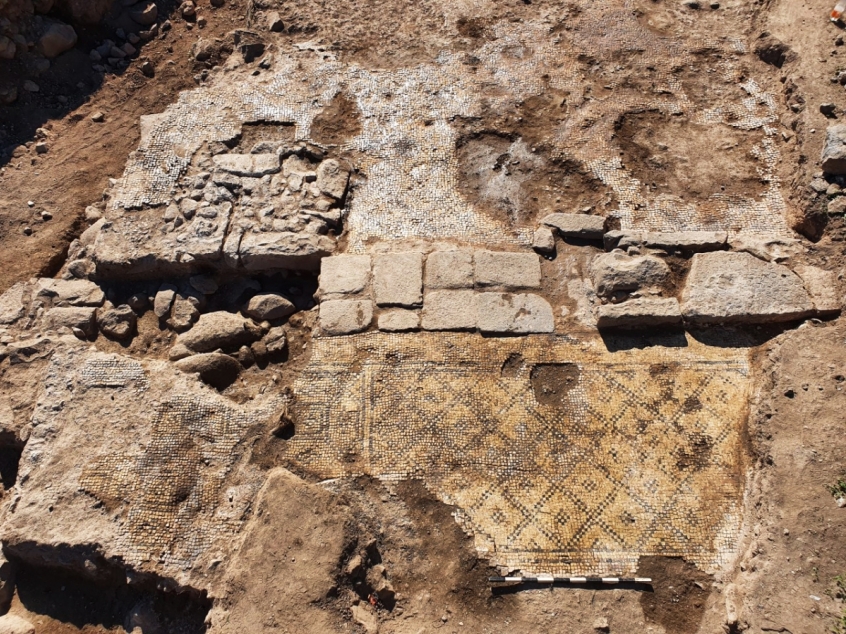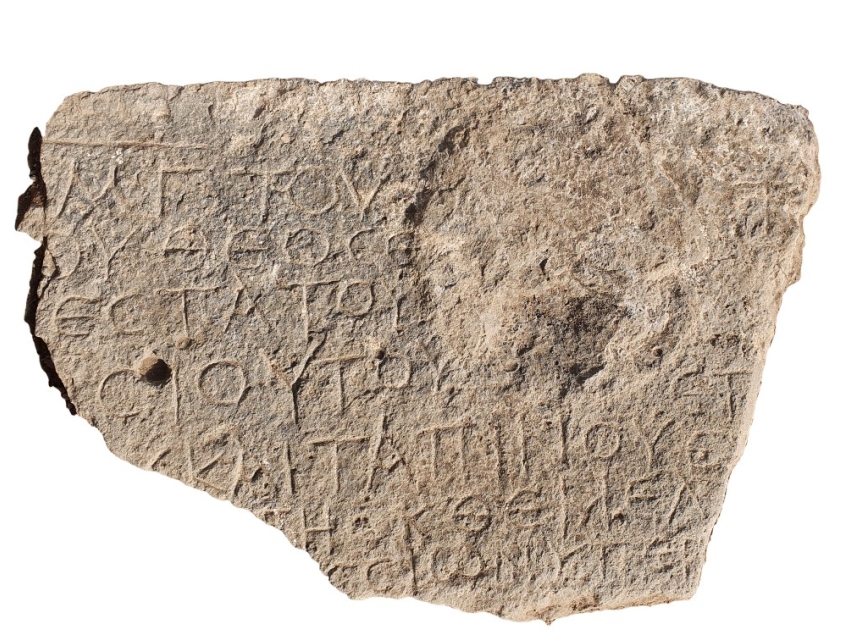
Archaeologists have discovered a 1,500-year-old inscription reading "Christ, born of Mary" in northern Israel.
The inscription was carved in Greek and originally formed part of a lintel in the doorway to a Byzantine church.
The doorway dates back to the late fifth century BC. The stone with the inscription was repurposed in the walls of a magnificent building from the Byzantine or Early Islamic period that is now being excavated by the Israel Anqituities Authority (IAA).
Archaeologists have unearthed two rooms to the building, both with mosaic flooring featuring a geometric design.
The excavations are taking place in the village of et-Taiyiba in the Jezreel Valley prior to the construction of a new road.
The uncovered inscription reads in full: "Christ born of Mary. This work of the most God-fearing and pious bishop [Theodo]sius and the miserable Th[omas] was built from the foundation - -. Whoever enters should pray for them."

Theodisius was regional archbishop of the metropolis of Bet She'an, to which et-Taiyiba in the valley belonged, and was founder of the church.
Dr Leah Di-Segni, researcher at the Institute of Archaeology of the Hebrew University of Jerusalem, who deciphered the text, said it is a dedicatory inscription that would have been engraved while the foundations of the church were being cast.
The words "Christ born of Mary" were common in inscriptions and documents from the time, and would have been intended to protect visitors to the church from the evil eye, Dr Di-Segni believes.
"The inscription greets those who enter and blesses them. It is therefore clear that the building is a church, and not a monastery: churches greeted believers at their entrance, while monasteries tended not to do this," she said.
Dr Walid Atrash of the Israel Antiquities Authority said, "This is the first evidence of the Byzantine church's existence in the village of et-Taiyiba and it adds to other finds attesting to the activities of Christians who lived in the region."













